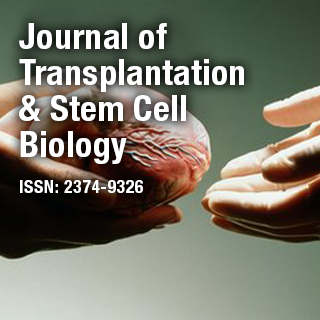Editorial Board
Editor-in-Chief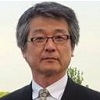
is the Director of Clinical Islet Laboratory and Adjunct Professor at Department of Surgery, University of Alberta, Canada. His research interests in experimental surgery with a focuses on islet cell transplantation, Islet isolation, Organ preservation, Organ donation and Islet biology.
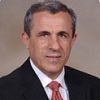
is a Professor of Surgery at Louisiana State University Health Sciences Center, USA. He is also the Director, Willis Knighton Advance Surgery Center, Willis Knighton Health System. His clinical interest is in the area of solid organ transplantation, HPB surgery and advanced laparoscopic surgery.
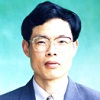
is the Deputy Director and Professor, Institute of Cellular Biology, College of Life Sciences at Zhejiang University, China. His research focuses on Bone marrow mesenchymal stem cells and hematopoietic stem cells, Transplanation and Tissue engineering basing on mesenchymal stem cells and Effects of microgravity on the differentiation of Human Mesenchymal Stem Cells.
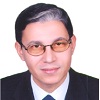
is a Professor of Urology, Urology and Nephrology Center, Mansoura, Egypt. His research focuses on surgery of kidney transplantation, translational-cell bladder tumours, and renal transplantation in children with abnormal lower urinary tract.
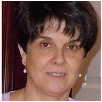
is a Professor of Regenerative Medicine at the Institute for Regenerative Medicine, Wake Forest School of Medicine. Her research investigates the biological properties and regenerative capabilities of adult stem cells, with the goal of understanding disease processes and developing novel approaches to cell therapy and tissue repair.

is a Professor of Radiology, Oncology, Biomedical Engineering, and Chemical & Biomolecular Engineering at the Johns Hopkins University School of Medicine, USA. His research is focused on Cell Engineering and Molecular Imaging in Regenerative Medicine.
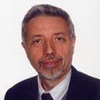
is a Professor of Nephrology and Head of Stem Cell Laboratory at the Molecular Biotechnology Center, University of Torino, Italy. His current interests are the role of bone-marrow derived or resident stem cells in renal tissue regeneration as well as in the molecular mechanisms driving stem cell recruitment and differentiation.

is a Professor of Stem Cell Sciences at Institute of Genetic Medicine, Newcastle University, UK. Her research focuses on reprogramming of human EPI-NCSC into iPS; developing protocols for the directed differentiation of hEPI-NCSC into neurons of clinical interest and testing the efficacy of EPI-NCSC in a large animal model of spinal cord injury.
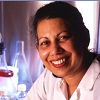
is a professor of medicine, Division of Hematology and Oncology, New Jersey Medical School, USA. Her main research interest is in stem cell biology. She also studies neural regulation of hematopoiesis, the immunology of adult human mesenchymal stem cells, and the clinical application of mesenchymal stem cells.
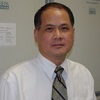
is a Professor at the University of Utah in Salt Lake City, USA. His laboratory research focus on the cellular & molecular biology of hematopoietic stem cells and progenitors. His clinical expertise is in adult bone marrow and stem cell transplant and graft-versus-host disease.
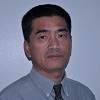
is a Professor of Molecular Physiology and Developmental Biology at the Laboratory Animal Research Center, Suzhou University, China. His research interests include pancreatic islet cell development, neurodegeneration and reprogramming of stem cells and differentiated somatic cells for the treatment of degenerative disorders such as diabetes and Alzheimer’s disease.
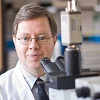
is the Director of the Division of Nephropathology, Professor of Pathology in the Department of Pathology and Laboratory Medicine and Adjunct Professor of Medicine at ‘The University of North Carolina’ in Chapel Hill. He is currently serving as the elected 2013 president of ‘The Renal Pathology Society’. Research efforts focus on renal allograft pathology and vasculitides.
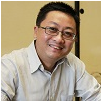
is the Director, Institute of Hematology and Professor of Cancer Biology, Sun Yat-sen University, China. He also serves as the Director, Institute of Cancer Stem Cell, Dalian Medical University. His research interests include Cancer stem cell, cancer cell migration, biomarker, targeted therapy.
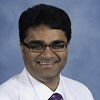
is the Director of Living Donor Transplantation, and an Associate Professor of Surgery, Urology and Pediatrics at the Tulane University School of Medicine, USA. His research interest focuses on Abdominal Transplant, Organ Procurement, Laproscopic Living Donor Nephrectomy and Ethics of Living Donation.
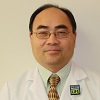
is the Director of Histocompatibility and Immune Evaluation Laboratory and an Associate Professor of Surgery at University of Texas, USA. His primary research interests focuses on histocompatibility for highly sensitized patients’ solid organ transplantation and immunological regulation of complement system.

is a Professor in the Department of Neurology at Keck School of Medicine of USC, USA. His research focuses on Immune regulation in neurologic disease, T cell receptor vaccines in Multiple Sclerosis, Gene therapy in autoimmune disease, Virtual reality development of disease models and neural stem cell research.
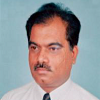
is an Associate Director and Head of Stem Cell & Gene-Therapy Research Group/Program, Institute of Nuclear Medicine & Allied Sciences, India. He has pioneered the critical-fate human stem-cell response research through genetic-engineering and high-throughput assays. Currently he works on Microencapsulation, Scaffolds and Responsive signal network overtake.
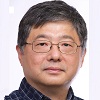
is an Associate Professor, Department of Biochemistry and Medical Genetics, University of Manitoba, Canada. His research focuses on mouse embryonic stem (ES) cells mediated transgenesis to analyze gene’s function and create human disease model and several genes that have been implicated in cell proliferation, angiogenesis and tumorigenesis.

is an Associate Professor at Wake Forest Institute for Regenerative Medicine. He is interested in developing molecular tools to understand transcriptional control that underlies development and disease processes. His current research focuses on understanding the biological basis for gastrointestinal (GI) symptoms in autism spectrum disorders (ASDs).
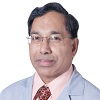
is an Associate Professor of Surgery and Microbiology-Immunology at Northwestern University, USA. His research has been on the immunological effects of donor bone marrow and hematopoietic stem cell infusions in organ transplant patients using ex vivo culture systems. Recent studies are also evaluating the role of regulatory T cells in tolerance induction.
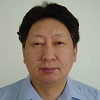
is an Associate Professor in the Department of Reconstructive Sciences, University of Connecticut Health Center, USA. His research focuses on the gene regulatory network controlling the early stages of neural crest cell and neural stem cell differentiation.
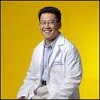
is an Associate Professor in Medicine at Stanford University School of Medicine. His research focuses on in vivo cellular and molecular MRI of cardiovascular stem cells. By combining the chemical sensitivity of MRI with high spatial and temporal resolution, a wide range of biological events spanning from stem cell survival to myocardial restoration is monitored.
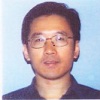
is an Associate Professor in the Department of Pathology, Stanford University School of Medicine, USA. The ultimate goal of his research is to translate these knowledge into tangible therapeutic interventions for diseases such as Parkinson’s disease, Alzheimer’s disease and cancer.

is an Associate Professor, Wake Forest Institute for Regenerative Medicine. His research focuses to develop safer and more efficient means of accomplishing gene transfer into hematopoietic & mesenchymal stem cell populations in vitro, and following direct vector administration in vivo, and in devising methods to reliably achieve immunological tolerance to the therapeutic transgene.

is a Research Associate Professor of Surgery & the Director of Microsurgery Core Facility, Comprehensive Transplant Center, Northwestern University Feinberg School of Medicine, USA. Her research focuses on exploring cellular & molecular mechanisms underlying rejection responses & immune regulations following transplantation tolerance induction & therapeutic strategies.
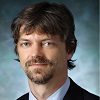
is an Associate Professor of Radiology at the Johns Hopkins University, USA. His particular interest is in developing cell-based therapies for neurological disorders by using myelinating glial progenitor cells for restoration of myelin in neurological diseases, including multiple sclerosis, stroke, and traumatic brain injury.
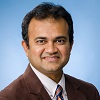
is an Associate Professor of Medicine and Director for Solid Organ Transplantation and Interim Chief of Division of Nephrology, University of Arizona, USA. His research focuses on clinical application of the novel method of immunosuppression monitoring in kidney and pancreas transplant recipients.
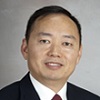
, Associate Professor, Department of Pediatric Surgery, University of Texas, USA. His research focuses on exploring the properties of the dedifferentiation/transformation of terminally differentiated cells into pluripotent stem cell for regenerative medicine and tissue engineering applications.
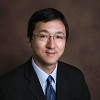
is an Associate Professor of Surgery at the University of California Davis Medical Center, USA. His research interests include: clinical kidney and pancreas transplantation, organ recovery and preservation, clinical outcome research, and translational research.

is an Associate Professor of Biology at Hunter College, City University of New York, USA. He is an expert in the growth and manipulation of embryonic stem cells & his research is focused on studying the development and pluripotent potential of ESCs as well as the generation of induced pluripotent stem cells by nuclear reprogramming.
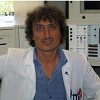
is currently an Adjunct Professor of Anatomy and Histology Human and Ocular, Faculty of Sciences, Roma Tre University, Rome, Italy. His work focuses on skeletal stem cells found in the bone marrow. His goal is to understand mechanisms of disease using stem cells as models, and to identify potential therapies that use stem cells as tools.
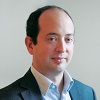
is a Research Assistant Professor of the Department of Surgery at University of Pittsburgh, USA. He is also the Director of minimally invasive esophageal surgery at Fundación Favaloro in Buenos Aires, Argentina. He utilizes ECM derived scaffolds to regenerate esophageal tissue with the aim of decreasing the morbidity and mortality of current surgical procedures.
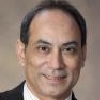
is an Assistant Professor of Surgery at University of Arizona, School of Medicine, USA. His research focuses on Gastroenterology, Hepatology, Treatment of chronic HCV infection with pegylated interferon, ribavarin and protease inhibitor in patients with cirrhosis of liver and on wait list for liver transplantation.
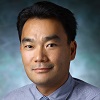
is an Assistant Professor in the Department of Neurology, Institute for Cell Engineering at Johns Hopkins University School of Medicine, USA. His research focuses on understanding the molecular mechanisms by which mutations in genes such as parkin, PINK1, DJ-1, LRRK2, and alpha-synuclein and molecular mechanisms underlying Parkinson’s disease.

is an Assistant Professor, Institute for Regenerative Medicine, Wake Forest School of Medicine. Her research investigates the molecular mechanisms of signal transduction involved in gut smooth muscle contraction-relaxation cycle & its regulation at thin & thick-filament level. Her goal is to repair the GI disorders based on cell therapy & regenerative medicine.
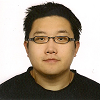
is an Assistant Professor in the Department of Genetics and Genomic Sciences and the Institute of Genomics and Multiscale Biology at Mount Sinai School of Medicine. He is an inventor on several patents and an expert in modeling and simulating biological networks to predict biological functions.
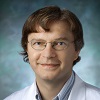
is an Assistant Professor of Radiology at the Institute of Cell Engineering, the Johns Hopkins University School of Medicine, USA. He is mainly interested in precision of stem cell delivery to eradicate high variability of outcomes in regenerative medicine. He employs various cell tracking methods and imaging modalities to accomplish this goal.
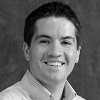
is an Assistant Professor in the Department of Molecular and Medical Pharmacology at University of California, USA. His research is to create and use patient-specific induced pluripotent stem (iPS) cell technology to treat diseases such as Parkinson’s, heart disease and liver disease as well as promote recovery from spinal cord injuries.

is an Assistant Professor in the Center for Stem Cell and Regenerative Medicine, and the Department of Neurosurgery at the University of Texas Medical School, USA. Her research interests lie in understanding gene transcription and regulatory networks governing stem cell self-renewal and differentiation, with an emphasis on neural and hematopoietic differentiation.
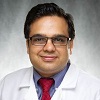
is an Assistant Professor, Division of Hematology, Oncology and Blood and Marrow transplantation, Department of Internal Medicine at University of Iowa Hospitals and Clinics, USA. His main research interest includes: Hematological malignancies especially multiple myeloma and Bone Marrow Transplantation.
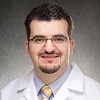
is an Assistant Professor of Medicine, Division of Hematology, Oncology and Blood & Marrow Transplantation, The University of Iowa and Holden Comprehensive Cancer Center, USA. His area of interest is melanoma and GU malignancy, with clinical research focus on early drug development and experimental therapeutics.
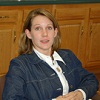
is an Assistant Professor of Physiology, Department of Natural Sciences, Northwest Missouri State University, USA. Her professional research interests currently include using neural stem cells to study the immunological effects of allogeneic transplantation into central nervous system compartments.
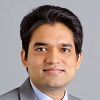
is a Clinical Assistant Professor, Department of Surgery at State University of New York at Buffalo, USA. His research interest focuses on Biomarkers for Rejection, Transplant Immunology and Clinical Outcomes Research.
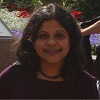
is a Research Assistant Professor in the Department of Biological Sciences and a member of the Eck Institute of Global Health at the University of Notre Dame, USA. Her research focuses on dissecting the cellular and molecular mechanisms involved in host pathogen interaction that are critical to successful immune response against infection.
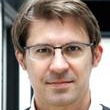
is a Clinical Lecturer in the Department of Clinical Neurosciences at the University of Cambridge, UK. He is interested in the biology of adult CNS stem and precursor cells. Using cellular re-programming techniques he aims to gain insight in the transcriptional and epigenetic events that determine cellular identity.
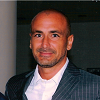
is pursuing university lectureship in Brain Repair and Honorary Consultancy in Neurology at the University of Cambridge. His major research focus has been the exploitation of the cellular and molecular mechanisms regulating the therapeutic plasticity of neural progenitor cells in inflammatory CNS diseases such as multiple sclerosis, ischemic stroke, and spinal cord injury.
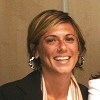
is currently working as a Training Office Coordinator for all national and international training projects and courses of Italian National Transplant Centre (CNT)-National Institute of Health. She is a member of several didactic/scientific committees of education and training activities in transplantation field.
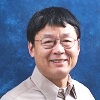
have been working in the field of translational medical research for more than 10 years after medical school, clinical practice, and post-doc training. His expertise lies in soft tissue and organ engineering, including skin, muscle, blood vessel, tendon, ligament, liver, pancreas, and kidney.
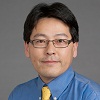
is an Instructor at the Wake Forest Institute for Regenerative Medicine, USA. His major research interests are to develop “smart” biomaterials, to fabricate engineered tissues or organs, and to induce efficient integration in vivo for functional tissue regeneration. Recent his active research has focused on functional skeletal muscle regeneration and engineering whole organs for transplantation.
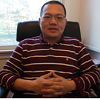
graduated from Nankai University & obtained his MS degree at Institute of Microbiology CAS and PhD in Biochemistry at UMASS Amherst. He then moved to Massachusetts for his postdoc training with Dr. Stuart Orkin at Children’s Hospital. He became an Instructor at HMS & then an independent investigator in newly established Black Family Stem Cell Institute, Mount Sinai School of Medicine, NYC.


